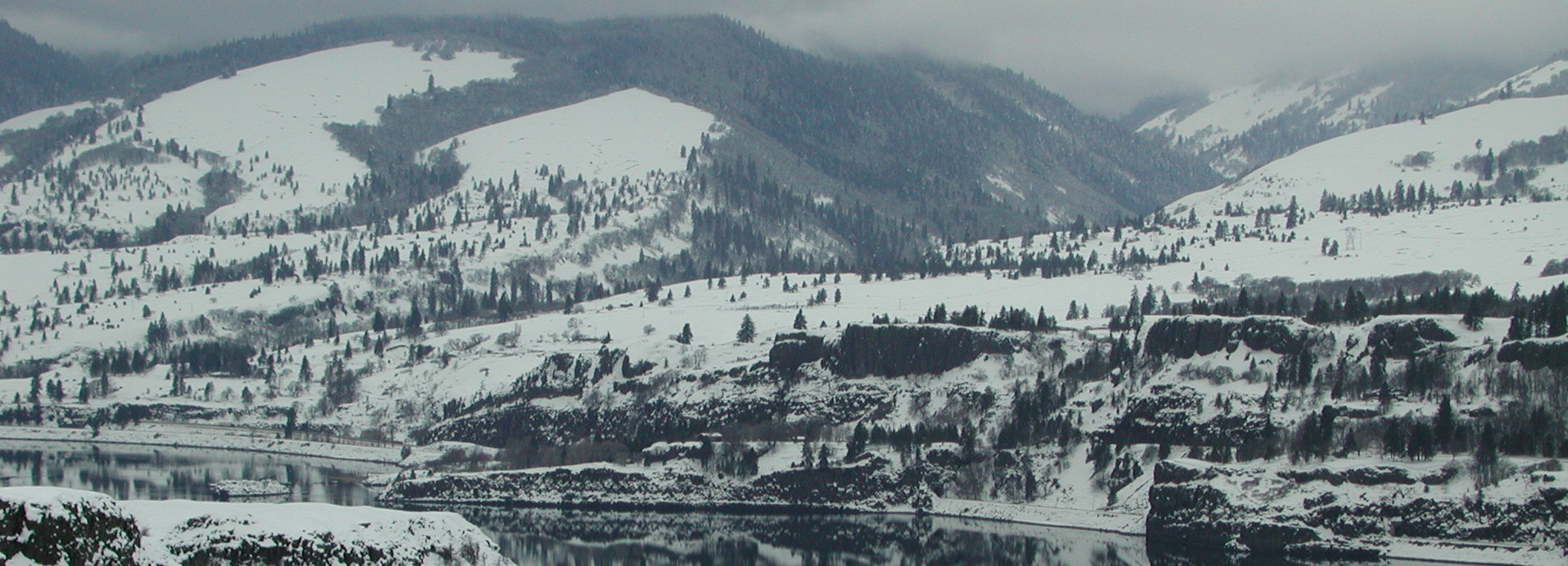The Columbia Gorge is facing a new threat and a reminder that the law designed to protect this national scenic treasure works only if it is followed by those tasked with regulating and enforcing it.
Friends is appealing recent decisions by the U.S. Forest Service and the Washington Department of Natural Resources (WDNR) that allow the logging of 1 million board* feet of timber (roughly equivalent to 250 logging trucks) within one of the most highly protected areas in the Columbia River Gorge National Scenic Area. These decisions violate the federal law that protects the Gorge.
The Forest Service and WDNR decisions both approve a commercial logging project proposed by Synergy Resources LLC within a Gorge Special Management Area near Major Creek in Klickitat County.
"If this logging project is allowed to go forward, a dangerous precedent would be set, nothing in the Gorge would be safe," said Friends Conservation Director Michael Lang. "Name any iconic place in the Gorge; if it has merchantable tree species, it could be logged under the agencies' interpretation of the Columbia River Gorge National Scenic Area Act."
Proposed logging in Gorge's most protected area
Since Congress established the Scenic Area Act in 1986, Friends has worked to ensure that this carefully designed law is carried out as intended. We review all development applications in the Scenic Area; while by definition the Scenic Area is considered suited for economic development, any such uses outside the Scenic Area's 13 Urban Areas are strictly defined by the Scenic Area Act and the Gorge Management Plan.
The primary purpose of the Act is to protect and enhance the scenic, cultural, recreational, and natural resources of the Gorge. The Scenic Area Act also states that economic development must be carried out in a manner that serves the first purpose: protecting and enhancing Gorge resources.
In the Scenic Area, there are six basic land use designations which are administered more forcefully in the Special Management Areas due to the high incidence of scenic, cultural, recreation, and natural resources. Special Management Area Open Space is the most restrictive of all the Scenic Area's land use designations and is vital to protecting key areas of the Gorge with sensitive resources. Commercial logging is prohibited on lands designated as Open Space, such as the area at Major Creek targeted by the logging project.
Avoidance of commercial logging question
Friends' appeal argues that the Forest Service’s decision sidesteps the issue of whether the activity is a commercial forest practice, which is prohibited on Open Space lands. The suit also notes that the Forest Service did not conduct key field wildlife species surveys before approving the logging project. These actions violate Scenic Area law and if not reversed would undermine decades of safeguards developed to protect Scenic Area natural resources and allow destructive, commercial logging in one of the Gorge's most ecologically sensitive places. "The Gorge Management Plan is clear: on lands designated Special Management Area Open Space, commercial logging is expressly prohibited," Friends Senior Staff Attorney Nathan Baker stated.
"Despite that prohibition, the Forest Service and Washington Department of Natural Resources never bothered to scrutinize this project to determine whether it is, in fact, a commercial logging project,” Baker added. "The method required to remove the logs suggests it will be an expensive project, indicating the timber would be commercially sold."
A destructive practice in a sensitive place
Despite the highly-protected nature of the land, the proposed logging project would use an environmentally destructive practice, known as high-lead logging, which would drag logs using elevated cables along hillsides within sensitive, Gorge wildlife habitat.
Among key species impacted could be western gray squirrel habitat, currently listed as a Species of Greatest Conservation Need under the Washington State Wildlife Action Plan and a Priority Species under the Washington Department of Fish and Wildlife's Priority Habitat and Species Program. According to the Washington Department of Fish and Wildlife, "Priority Species require protective measures for their survival due to their population status, sensitivity to habitat alteration, and/or recreational, commercial, or tribal importance."
Agencies waived or ignored guidelines
In its review document for the project, the Forest Service acknowledges the project area is within potential habitat for western gray squirrels and northern spotted owls and also admits the Management Plan requires a wildlife field survey once potentially sensitive wildlife are identified, yet effectively waives or ignores the guideline. The Washington Department of Natural Resources similarly approved the logging apparently without first requiring that all field surveys be completed.
"Private logging companies should not be given free passes by government agencies to commercially log the Gorge’s most sensitive locations, like what happened here," Baker said.
"In appealing these decisions, Friends seeks to ensure sensitive areas in the Gorge are free from commercial logging, as mandated by the Scenic Area Act," Lang added.
Resources
- Friends Complaint Against Forest Service Decision
- Friends Appeal of WDNR Decision
- Columbia River Gorge National Scenic Area Management Plan
*A previous version of this article omitted the word "board."


